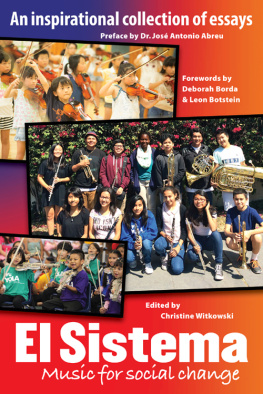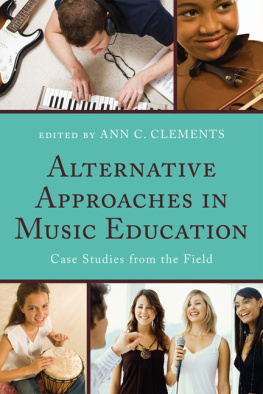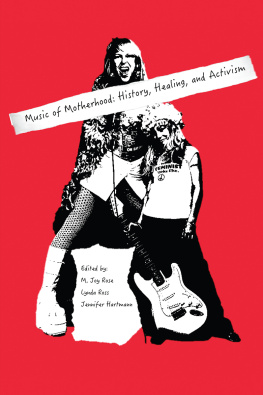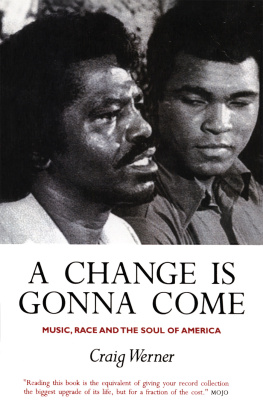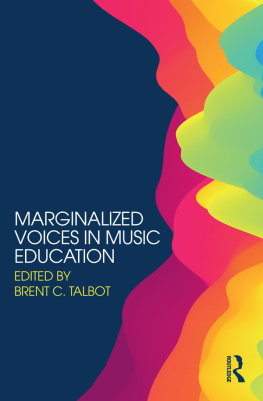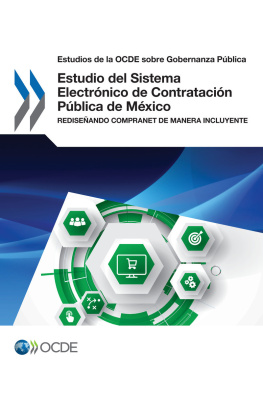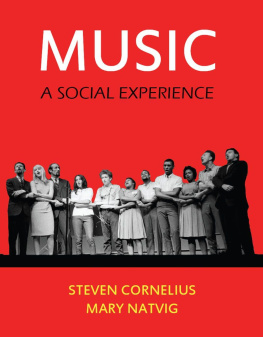Copyright 2015 Omnibus Press
This edition 2015 Omnibus Press
(A Division of Music Sales Limited, 14-15 Berners Street, London W1T 3LJ)
EISBN: 978-1-78323-771-5
The Author hereby asserts his / her right to be identified as the author of this work in accordance with Sections 77 to 78 of the Copyright, Designs and Patents Act 1988.
All rights reserved. No part of this book may be reproduced in any form or by any electronic or mechanical means, including information storage and retrieval systems, without permission in writing from the publisher, except by a reviewer who may quote brief passages.
Every effort has been made to trace the copyright holders of the photographs in this book, but one or two were unreachable. We would be grateful if the photographers concerned would contact us.
A catalogue record of this book is available from the British Library.
For all your musical needs including instruments, sheet music and accessories, visit www.musicroom.com
For on-demand sheet music straight to your home printer, visit www.sheetmusicdirect.com
Proceeds from the sale of this book will support the students and families of Youth Orchestra Los Angeles (YOLA) at Heart of Los Angeles (HOLA).
This book is dedicated to my first horn teacher, Joseph Buono, and to all music teachers who have changed the life trajectory of a student.
This book is also for my mother, a great advocate for music education.
Acknowledgments
T HIS book is a collaborative feat, so there are many individuals and organizations to thank. I would like to start by acknowledging the incredible time and energy of the books contributors, who agreed to openly share their experiences, learning, ideas, and mistakes for others to see and consider. Persistence is clearly a characteristic of musicians and activists, and I am forever grateful that all continued with this project through many questions, conversations, and rounds of editing.
Also vitally important to the success of this book is the editor, Paul De Angelis of Paul De Angelis Book Development. Paul offered an articulateness, structure, and clarity to these pages without ever compromising the authors voices or ideas. I have come to appreciate that editing is an artform dependent not only on significant language skill, but also critical questioning and considerate, patient collaboration. Like a great accompanist, a great editor offers egoless support to illuminate and deepen the intention of a soloist or writer. In this realm, Paul De Angelis is a true artist.
There are also several organizations and individuals to be acknowledged for their support of this book. In particular I wish to thank Robert Wise, Chris Charlesworth, and Nigel Gilroy of Music Sales Group; Eduardo Mndez, Romina Noviello, and Patricia Abdelnou of FundaMusical; Heart of Los Angeles (HOLA); The Los Angeles Philharmonic Association; The Longy School of Music of Bard College; Benjamin Rubinfeld and Ziffren Brittenham LLP; multiple El Sistema-inspired programs, including: The Baltimore Symphony Orchestras OrchKids Program and Dan Trahey; Corona Youth Music Project; Crescendo Detroit and Damien Crutcher; Friends of El Sistema Japan; The Harmony Project; The Incredible Childrens Art Network (iCAN), Adam Johnston, Xchitl Tafoya, and Ilda Zavala; Juneau, Alaska Music Matters (JAMM); KidZNotes and Katie Wyatt; Ncleos Estaduais de Orquestras Juvenis e Infantis da Bahia (NEOJIBA), Ricardo Castro and Eduardo Torres; The San Diego Youth Symphony Community Opus Project; El Sistema Colorado; Sistema Scotland; El Sistema Sweden; and Union City Music Project. I also must acknowledge and thank the past and present YOLA at HOLA and HOLA Music Faculty members: Jon Armstrong; Mani Baker; Claire Bergen; Dawn Bertani; Brandon Brack; Heather Breene; Leah Carter; Roxana Castro; Leslie Chinchilla; P. Blake Cooper; Scott Cummings; Jackie DesRosier; Michelle Elliot; Emily George; Rachel Hockenberry; Emma Joleen; Jessica Jones; Shabnam Kalbasi; Bruce Kiesling; Emily Kubitskey; Emma Kuzmanoff; Dorothy Micklea Valencia; Juan-Felipe Molano; Yuri Morelos; Nadene Rasmussen; Robert Reyes; Nikki Shorts; Megumi Smith; Mark Tyson; and Tim Winfield.
A special thank you to the children, parents, teachers, and staff of HOLA: I hope that in these pages others will also be inspired by the beauty and strength you hold because to me, it has been the most incredible gift possible; to The New England Conservatory, Mark Churchill and the 20092010 class of Abreu Fellows; and to my husband Dan, for bringing me tea and humor throughout this books development.
Finally, I must extend my deepest and unending gratitude to Jos Antonio Abreu and the children, teachers, leaders, and communities of El Sistema in Venezuela. Thank you for continuing to teach the world through your incredible example and for inspiring a movement.
Foreword
By Deborah Borda, President, Los Angeles Philharmonic
I N 2006, I took a trip to Caracas. Though I was searching for a music director, I discovered something that would change my life: El Sistema. There was one certainty after my ten days immersed in Maestro Jos Antonio Abreus visionary program. Regardless of whether we could entice Gustavo Dudamel to become the music director of the Los Angeles Philharmonic, we would adapt El Sistema to Los Angeles. This was our responsibility. And this is precisely what we did, creating Youth Orchestra Los Angeles (YOLA) with the most exceptional community partners that our great city has to offer.
Of course, we were fortunate enough to bring Gustavo to Los Angeles as well. When he arrived, his very first concert as music director was not the traditional season-opening gala at Walt Disney Concert Hall. It was, instead, a free concert for 18,000 people at the Hollywood Bowl. We called it Bienvenido Gustavo. Gustavos first downbeat as music director was conducting the new YOLA orchestra. I remember seeing the excitement in the students faces such an enormous stage for these young children! Their performance captured the imagination of the country.
Bienvenido Gustavo was an innovative launch to a music directors tenure, and one that pointed us in a new direction. YOLAs rendition of Beethovens Ode to Joy was followed by the Los Angeles Philharmonics performance of the full-length Ninth Symphony. From that moment forward, our community-based efforts and the artistry of our orchestra would be inextricably connected. YOLA students and their families sat just steps away from the Hollywood Bowl stage, seeing one of the worlds greatest orchestras perform a piece that had become their own.
At our most recent Take a Stand Symposium in 2014, I had an opportunity to be interviewed by two of YOLAs first graduating seniors. These two students received full scholarships to college through the Posse Foundation. To hear of their aspirations beyond the world of music reminded me of the power of our YOLA program to create a new generation of agents of change. This is very real progress, and we are only beginning.
I continue to be inspired by El Sistema, its founder, and the thousands of community leaders who share the Maestros ambitious vision to use music as a vehicle for social change. And we know why this is successful: artistic excellence and social development carry equal weight in a programs construction. As you read the following pages, I hope that you feel empowered, inspired, and ultimately energized to take on Maestro Abreus challenge and create a stronger future for this world through music.

